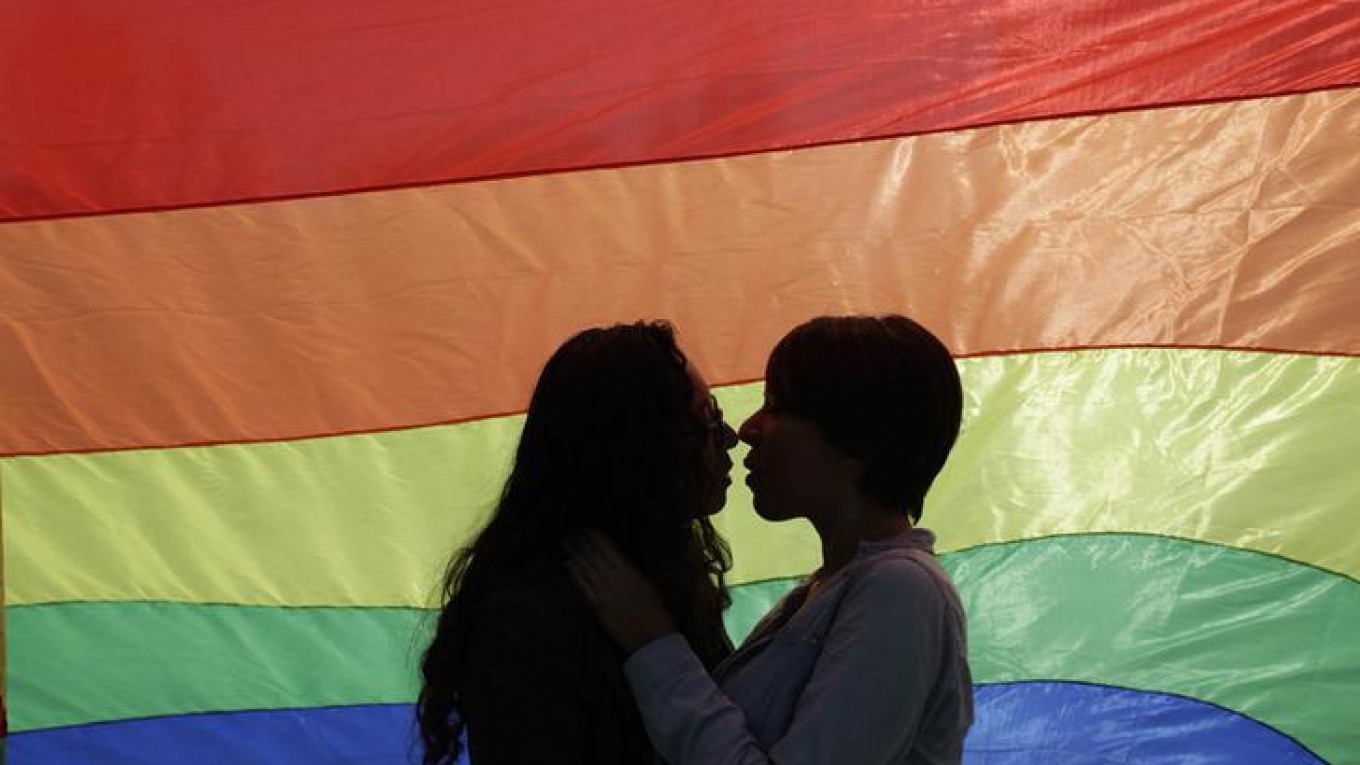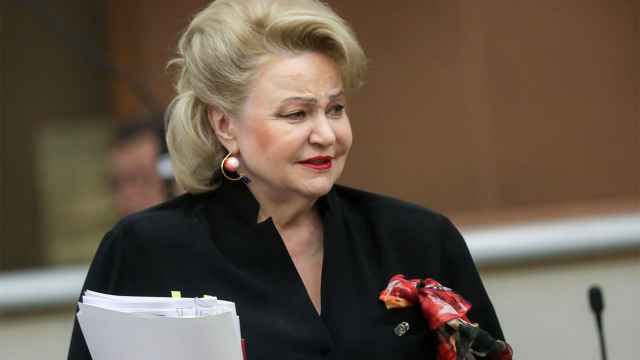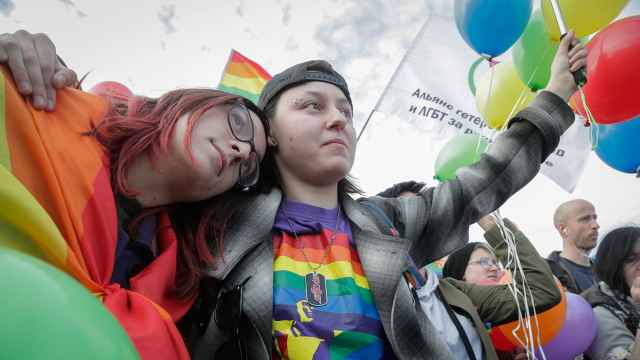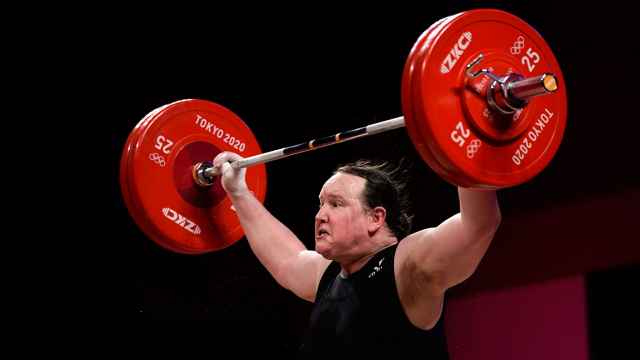On June 20, the European Court of Human Rights (ECHR) ruled that an infamous Russian law against “gay propaganda” violated freedom of expression.
Notably, only one ECHR judge voted against the ruling: Dmitry Dedov, Russia’s representative in the court. In his dissent, Dedov supported the official Russian position that “a positive image of homosexuality would be detrimental to [children's] development and make them vulnerable to sexual abuse.” But six other judges — from countries as diverse as Cyprus and Slovakia — disagreed.
There could hardly be a more demonstrative verdict on gay rights in Russia. As the LGBT community racks up victories around the globe, Russia increasingly finds itself as an outlier in Europe.
Not that Russia’s anti-gay law was ever mainstream. Passed in 2013 to ban “propaganda of nontraditional sexual relations among minors,” the law provoked a public outcry throughout the West. Prominent celebrities called for boycotting all things Russian. Activists called for their countries to pull out of the 2014 Winter Olympic Games, to be hosted in Sochi. The law provoked genuine fear among some LGBT athletes that they could face discrimination or arrest during the games.
Ultimately, the boycott effort failed. But the Kremlin found itself on the defensive. Numerous Western leaders declined to attend the Olympics, and the U.S. sent a delegation featuring prominent gay athletes to Sochi, a symbolic rebuke to the Kremlin.
Several years later, the “gay propaganda” law’s effects on Russian society are still toxic. In April, the independent Novaya Gazeta newspaper revealed that security forces in Russia’s Chechnya region were detaining, torturing and even killing gay men en masse. One of the reasons cited by Novaya Gazeta for the crackdown was, in part, the anti-gay law.
A group of activists led by Nikolai Alexeyev, one of the plaintiffs in the ECHR’s current ruling, had been submitting petitions to hold LGBT protests in cities across Russia. The activists understood their applications would be rejected. They were actually collecting rejection letters to build a case in the ECHR against the “gay propaganda” law. Unfortunately, their petitions to hold marches in the conservative Caucasus region, where Chechnya is located, provoked significant local blowback. That appears to have led the Chechen authorities to carry out “preventative detentions” of gays.
Now Russia must pay Alexeyev and two other LGBT activists, Nikolai Bayev and Alexei Kiselyov, nearly 50 thousand euros (around $55,800) in compensation each, the ECHR ruled. The ruling cannot alter Russian legislation, but it does set a precedent for future ECHR cases against Russia over its “gay propaganda” law.
It also makes a clear statement that Russia’s position on LGBT rights is backward. In recent weeks, Taiwan’s constitutional court has legalized same-sex marriages. Ireland’s parliament elected the country’s first openly gay prime minister. Last week, even Serbia— a Russian ally and Orthodox Slavic country — appointed a lesbian prime minister.
Meanwhile, on June 18, over 2,000 Ukrainians marched through central Kiev in support of LGBT rights. Despite aggressive opposition from conservative and nationalist forces, the Kiev Pride rally went off with hardly a hitch, thanks to the efforts of over six thousand law enforcement officers. Among the Ukrainian demonstrators was a small delegation of LGBT activists from St. Petersburg.
“It is impossible to march in Russia,” activist Alexei Nazarov told The Moscow Times. “So we can only do it abroad.”
A Message from The Moscow Times:
Dear readers,
We are facing unprecedented challenges. Russia's Prosecutor General's Office has designated The Moscow Times as an "undesirable" organization, criminalizing our work and putting our staff at risk of prosecution. This follows our earlier unjust labeling as a "foreign agent."
These actions are direct attempts to silence independent journalism in Russia. The authorities claim our work "discredits the decisions of the Russian leadership." We see things differently: we strive to provide accurate, unbiased reporting on Russia.
We, the journalists of The Moscow Times, refuse to be silenced. But to continue our work, we need your help.
Your support, no matter how small, makes a world of difference. If you can, please support us monthly starting from just $2. It's quick to set up, and every contribution makes a significant impact.
By supporting The Moscow Times, you're defending open, independent journalism in the face of repression. Thank you for standing with us.
Remind me later.






